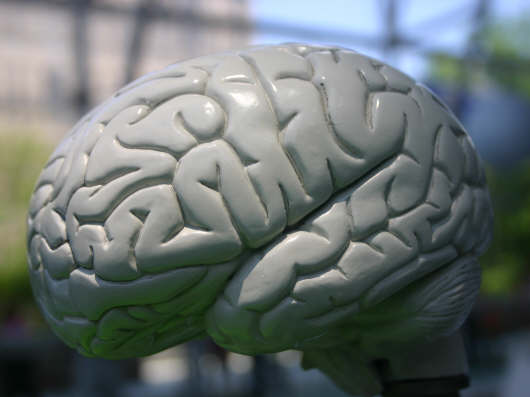Stephen Walker discusses the social learning process in depth, using a comparison with his behaviour change workshops to explore the issues.
Somewhere between whiteboard waffle and building a raft out of sugar beet (all copyrights acknowledged) there is a useful blend of new information and experiential learning.
The subject matter of our training sessions is centred on behaviour change, new skills to allow new behaviour. Perhaps our content is ideally suited to learning by doing. It is an effective way to change behaviour. But then, we are not just trying to influence the little grey cells but also the personal values, the inter-personal skills and the social skills.
 "It is a complex decision whether to change the team makeup between tasks at the workshop. While mild competition is positive, red raw competition is debilitating."
"It is a complex decision whether to change the team makeup between tasks at the workshop. While mild competition is positive, red raw competition is debilitating."Are there subjects that can be learnt from pure PowerPoint or splashing about in ice cold water? Let me know if you think so and what they might be through the comments please.
I’m going to lay out our workshop practice which delivers behaviour change.
Icebreaker
People can be uncomfortable in training sessions. An icebreaker can help overcome that shyness, that reluctance and allow them to open their minds.
It gives the group, often from the same organisation but not necessarily known to each other, a chance to mix a little and build some shared connections. The icebreaker activity will be designed to suit the group and best prepare them for the rest of the Workshop.
Finally the icebreaker allows us to observe the trainees in action. We will usually have mildly competitive team activities in the workshop to stimulate engagement. The icebreaker is our chance to weigh up if we have made the right team selections.
Tell them the subject
The subject matter is introduced, using PowerPoint or some such, and the outline of what is to be learned. This "tell them" phase is ideally ten minutes or 20 minutes at most. You know about the post lunch dead spot so you know not to introduce twenty minutes of detailed information at 2pm.
The "tell them" has to be short, sharp and relevant. We will usually provide a workbook with background information that the trainees can read at their leisure.
Learn by doing
The trainees split into teams usually. The selection of team members will depend on the planned learning outcomes for the task. Age, sex, seniority and area of expertise are good basic criteria. Obviously if the task requires key roles to be filled we will try to build the teams with this in mind and select by personal characteristics as well.
The tasks are usually table top or indoor at least. We are not yet convinced that being wet and cold is a necessary component of learning.
Interaction between the task, trainees and the trainer
The trainees will be engaged in a continuous round of discussion, experiment and discovery. As part of this the trainer may deliver a prompt, a suggestion of an approach that keeps the session moving along broadly to plan. Although I always learn something at these workshops, human ingenuity being what it is.
The teams carry out various processes, refining them as they go, to achieve outcomes that create the emotions they feel.
Winding down
When the task is complete each team presents their findings. This is necessary to work through the pride they feel in their unique solution to their problem. This is akin to lactic acid in hard worked muscles, if you don’t deal with it, it hurts.
Discussion
This will be followed by a group discussion to highlight what the learning points were, pick up on their discoveries in the task and nail down the learning with some self-made notes for action the next work day.
One-to-ones
Sometimes some of the trainees struggle to accept the new understanding. People are different and have varying times to accept new ideas.
In these cases they will receive close attention at the breaks to embed the new learning. Sometimes the attention will continue after the workshop with communications intended to produce the learning outcome.
Next task
It is a complex decision whether to change the team makeup between tasks at the workshop. Generally speaking, while mild competition is positive, red raw competition is debilitating. This can be mitigated by mixing up the teams during the workshop.
However, some workshop subjects require team development as part of the learning process.
The teams have been observed closely during their activities and sometimes conflicts arise. It may or may not be relevant to resolve these conflicts by moving people between the teams. It depends on the workshop subject.
Conclusion
Social learning gives people the opportunity to learn with and from their team-mates through shared joyful discoveries.
In any training programme the unwilling are a significant threat, but in social learning their ability to disrupt the discovery process is substantial.
In a corporate setting the managers are well aware of who is more or less willing to adopt new ideas.
I strongly recommend the "willingness to change" dimension is included in all training needs analyses. You need to know, and can perhaps re-design the training, if you have a large element of the unwilling.
Perhaps the first training session should be on openness to change and new ideas?
Stephen Walker is a co-founder of Motivation Matters, set up in 2004 to develop the management of motivation to inspire greater performance. He has worked for notable organizations such as Corning, De La Rue and Buhler and has been hired to help Philips, Lloyds TSB and a raft of others. You can follow Stephen on LinkedIn, Twitter, Facebook, YouTube and blog.








